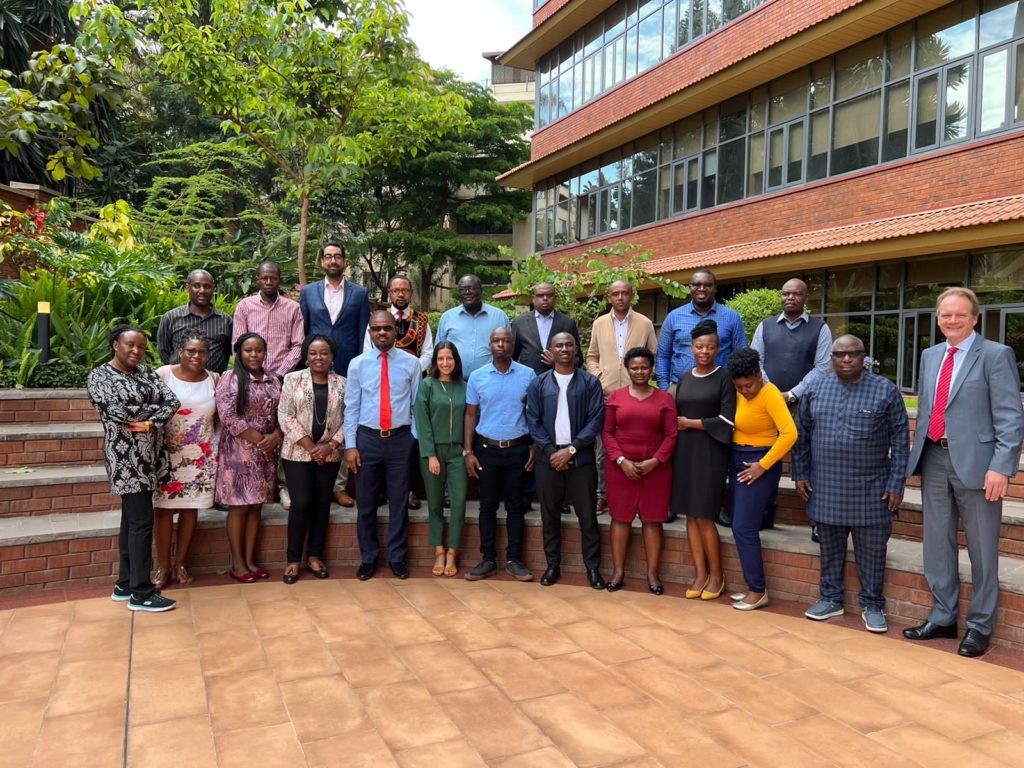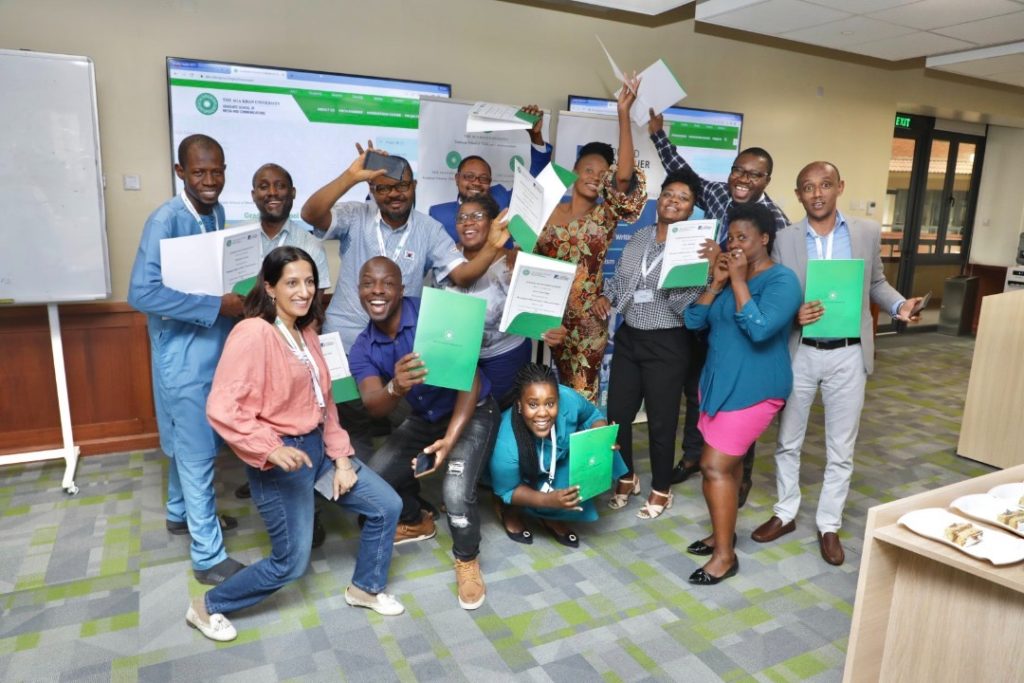
By Mustapha Ceesay
In Nairobi, Kenya, fifteen (15) African journalists (newsroom managers) have undergone a week’s course called “Managing Conflict in Today’s Newsroom”.
KAS Media Africa and Aga Khan University Graduate School of Media and Communication organised the programme from 14th-18th November 2022, which aims to better prepare the participants to address newsroom conflicts as newsroom heads or managers.
During the conference, participants from different countries in the West, East, South, and Central Africa learnt the various forms and causes of conflicts in newsrooms in their countries. They also learnt how to solution, or prevent those conflicts when, or before they emerge in their newsrooms.
The session was characterised by series of presentations and activities led by experienced facilitators who took the participants on a visit to East Africa’s oldest media company, The Standard Media Group in Nairobi.
Christoph Plate, Director of KAS Media Africa stated the reason for organising such an event for newsroom managers from across the continent.
“Newsroom-managers are crucial for a good media product. But they are often left alone with issues of conflicting egos, gender and ethnic disputes. Yet, they are expected to deliver quality. That’s a challenge, which KAS Media Africa and GSMC wanted to address,” he said.
Takeaways of participants
The course participants from The Gambia, Nigeria, Ghana, Cameroon, Rwanda, Malawi, Zimbabwe, Kenya, Uganda, South Africa, and Ethiopia, has been each presented with a certificate of participation.

The course participants pose for photo after receiving their certificates at the end of “Managing Conflict in Today’s Newsroom” course at Aga Khan University Graduate School of Media and Communication in Nairobi, Kenya on 18th November 2022 (Photo: KAS Media Africa)
Some of the journalists shared with this medium their takeaways from the 5-day session held at the Aga Khan University Graduate School of Media and Communication in Nairobi, Kenya.
The takeaways of Richard Bishumba, audience engagement editor, The New Times (digital media) in Rwanda include pressure management, use of reverse mentorship, self-awareness, and active feedback.
“I think almost everything in this course spoke to me and my news organisation. Particularly, I was reminded that managing conflict in the newsroom starts with managing self. The top skills for me is pressure management, ability to use reverse mentorship, self-awareness, and actively seeking/giving feedback,” he said.
Wezi Nyirongo from Capital Radio in Malawi described the course as a game changer: “So the training was a game changer. It reminded us of how as leaders we’re supposed to resolve conflicts within our newsrooms that sometimes affect productivity and performance of our staff. The practical examples of conflicts in newsrooms were enlightening for example how poor communication and coordination can bring down a big brand or demotivate the newsroom team.”
She said the session taught her that good communication skills is key to resolving conflicts and keeping the newsroom team motivated.
“I have learnt that good communication skills is key to resolving conflicts and keeping the newsroom team motivated. The wellness of the team is also crucial for example conducting team building activities as well as mental health sessions. Additionally, I need to keep a team that does not sabotage the vision of the station by promoting negativity,” Nyirongo added.
The visit to the oldest Media Company in East Africa (The Standard Group), the experience of the facilitators and the practical component of the course stood out for Kofi Adu Domfeh, news editor, Multimedia Group, Ghana,
“The quality of practical training, depth of knowledge and experience of resource persons and the hands-on knowledge acquisition were unique for me. The visit to the Standard Group was also insightful in appreciation of the operations of a converged newsroom in a digital space,” he told Kerr Fatou.
The news editor of the Multimedia Group in Ghana continued: “The need for a leader to be accommodating of individual unique personalities and use the adaptive leadership model to lead. The realities of conflicts and the importance to appreciate such conflicts and engage using emotional intelligence to resolve them are also skills that will enable me lead my team efficiently.”
The maiden “Managing Conflict in Today’s Newsroom” course for African journalists was led by Prof. Nancy Booker, Interim Dean at the Aga Khan University Graduate School of Media and Communication (GSMC) and a certified professional mediator; veteran Kenyan journalist, Joseph Odindo; and Christoph Plate, Director of KAS Media Africa.
The participants for the inaugural course have been selected from a list of more than 150 applicants from across Africa.

